- Register
- Log in to Tune-In
- Wishlist (0)
-
Shopping cart
(0)
You have no items in your shopping cart.
Beatles News

Before there was a documentary. Before the rooftop reunion. There was The Beatles Anthology—their story, told in their own words, in one unforgettable volume. Now, 25 years later, it’s back.
The landmark international bestseller—The Beatles’ own story, in their own words—reissued on the 25th anniversary of its first publication.From their years growing up in Liverpool through their ride to fame to their ultimate breakup, here’s the inside story. Interwoven with The Beatles’ own memories are the recollections of such associates as road manager Neil Aspinall, producer George Martin, and spokesman Derek Taylor.
The Beatles Anthology is a once-in-a-lifetime volume: warm, frank, funny, poignant, and bold—just like the music that’s been a part of so many of our lives. The Beatles Anthology is, for the first time, the story of The Beatles by The Beatles. Created with the full cooperation of Paul, George, Ringo, and Yoko Ono Lennon, it also includes the words of John, painstakingly compiled from sources worldwide. The Beatles Anthology is, in effect, The Beatles autobiography.
The Beatles Anthology features over 1300 images, most previously unpublished. Paul, details

New book Words Of Love celebrates the life of the late rock and roll musician and songwriter Buddy Holly as Sir Paul McCartney reveals how he inspired The Beatles.
A new book shows Buddy Holly as you've never seen him before - including without his trademark glasses.
Buddy Holly: Words Of Love celebrates the life of the late rock and roll musician and songwriter and the inspiration he had on many of the greatest musicians of the last six decades. Released this week in hardback, the book documents Holly's career and legacy through a collection of never-before-seen photography and personal items as well as stories from those close to him.
One shot in an open neck checked shirt shows him without glasses aged 17 and was taken from his 1954 school yearbook. He is also shown in an oversized white or cream jacket on stage in Tampa, Florida from January 1957 when he supported Hank Thompson.
The following month in February 1957, Buddy would rehearse and re-record That'll Be The Day with his new band the Crickets. It would achieve widespread success and go gold with more than a million sales in the US.
Born in 1939 the book also traces things right back to his childhood and his first radio shows in details
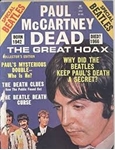
In 1969, as Abbey Road climbed the charts, a strange rumor exploded across college campuses and late-night radio waves: Paul McCartney was dead. According to the theory, Paul died in a fiery car crash in late 1966, and rather than devastate fans worldwide, the remaining Beatles — with alleged help from British intelligence — replaced him with a lookalike named Billy Shears. To ease their guilt or slyly share the truth, they began leaving cryptic clues in lyrics, album artwork, and even backmasked recordings. The result? A full-blown pop culture phenomenon that had fans poring over Beatles records like ancient scrolls.
Here are 20 of the most iconic and widely cited “Paul is dead” clues that kept a generation of fans guessing.
1. “Turn Me On, Dead Man” – Revolution 9
When fans played the experimental White Album track Revolution 9 in reverse, many claimed to hear the phrase “Turn me on, dead man” repeated clearly. This eerie line, combined with the track’s already nightmarish soundscape, seemed to point directly to a hidden message about Paul’s death, sparking one of the theory’s most persistent audio clues.
2. Abbey Road as a Funer
details

A “real hell” inspired the Abbey Road track, Here Comes the Sun, according to its writer, George Harrison.
The Beatles included Here Comes the Sun as the first song on the B-side of Abbey Road. Harrison would go on record as saying the song came from a “very heavy” place, with Eric Clapton’s influence on the song noted by Harrison in an interview with Rolling Stone UK. The Beatles member behind hit tracks like While My Guitar Gently Weeps and Something confirmed it was while in Clapton’s garden that he came up with Here Comes the Sun. The song is widely considered one of the best Beatles compositions.
Commenting on most of the songs featured on Abbey Road a short while before its release, Harrison suggested the song is “very simple”. He said: “Here Comes the Sun, the first cut on side two, is the other song I wrote for the album.
“It was written on a very nice sunny day in Eric Clapton’s garden. We’d been through real hell with business and it was all very heavy. Being in Eric’s garden felt like playing hooky from school. I found some sort of release and the song just came.
“It’s a bit like If I Needed Someo details
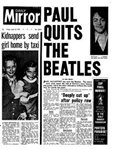
Fifty-five years ago – on April 10, 1970 – the Beatles broke up, marking the end of one of rock 'n' roll's most prominent bands.
Between 1962 and 1970, The Beatles – a four-man band from Liverpool, England – were among the most influential bands in music history, inspiring others such as The Rolling Stones, The Beach Boys, Queen and Nirvana.
Together, the Beatles wrote more than 300 songs, were nominated for 25 Grammy Awards, won eight, and starred in five movies.
There are several theories as to why The Beatles broke up: the death of long-time manager Brian Epstein, disputes with business management, creative differences, or John Lennon's relationship with his future wife, Yoko Ono. The band ultimately drifted apart.
Here’s a look at their albums and interesting facts about the groundbreaking band:
Although The Beatles were together for less than a decade, the songwriting of Paul McCartney and John Lennon pushed the boundaries of music and evolved throughout the 1960s. All four band members composed several songs.
A study published in The Journal of Beatles Studies examined the number of songs written by each of the four Beatles between 1962 and 1970 details
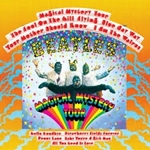
We all know Magical Mystery Tour for its acid-drenched imagery, colorful chaos, and unforgettable tracks like “I Am the Walrus” and “The Fool on the Hill.” But behind the rainbow font and surreal bus trip lies a strange, deeply experimental chapter in Beatles history. From chaotic sessions to hidden musical innovations, here are 5 surprising facts about the album that aren’t always in the spotlight.
1. It Started as Paul’s Psychedelic Answer to Ken Kesey
The concept for Magical Mystery Tour was Paul McCartney’s brainchild, inspired by author Ken Kesey and his Merry Pranksters’ LSD-fueled bus trips across the U.S. Paul wanted to create a film that mirrored that free-form, anything-goes energy — but with a distinct British vibe, like holiday charters headed to the seaside. The movie itself was completely unscripted. Just ordinary people aboard a coach on a “magical” journey, guided by the Beatles and their imaginations. While the film confused British audiences when it aired, the music became a psychedelic staple.
2. The Recording Sessions Were Total Mayhem (Even George Martin Backed Off)
By 1967, the Beatles were enterin details

In a recent interview with The Telegraph, Baird was candid when asked if she believed that Liverpudlian actors should have been cast to portray the four Liverpool native musicians, who will now be portrayed by two actors from Ireland and two from London. While she has no direct involvement in the films or Lennon’s estate, she believes that only Liverpudlian actors can truly embody the Beatles in all their local authenticity. Read her comment below:
Yes, of course. No one else can get that Liverpool intonation. Nobody.
When asked if she would give director Sam Mendes any advice that would help him capture life as a member of the iconic band as accurately as possible, Baird stated that talking to her would be the last thing the director would want to do. This is what she said:
He’s never going to ask me! I’m the last person he would want to talk to because then he can’t make it up.
Mendes has a track record of capturing nuanced and emotional performances, so he may still be able to capture the band's spirit even if the accents are not spot-on.
While the chosen cast of The Beatles – A Four-Film Cinematic Event consists of talented rising stars, their geographic details

Our childhood friends’ parents often play larger roles in our lives than we fully realize when we’re young, and a teenage Paul McCartney watching George Harrison’s dad was certainly no exception. Years before McCartney and Harrison would become a part of one of the biggest rock bands of the time, they were schoolmates and pals familiar with each other’s home lives.
When someone’s parent was acting, as the teens might say, lame, friends knew about it. When someone’s parent did something incredibly cool, friends knew about that, too. And one fateful day at the Liverpool Institute High School for Boys, George Harrison’s father became a “hero” in the eyes of their group of mates.
As the leather jacket-clad, pompadour-haired Quarrymen’s outward appearance might have suggested, Paul McCartney and George Harrison’s style and attitude often made them the target of canings by their teachers at the Liverpool Institute High School. During a television interview, McCartney described his school’s practice of caning students across their open palms. “We never really did anything wrong. But we might have, like, tight trousers and Ted hairdos. That p details

Music icon George Harrison said he felt "limited" and "pigeon-holed" working on one of The Beatles' most famous albums, which he dubbed as "weird."
Around 1967, after the group had sworn off touring and released Sgt. Pepper's Lonely Hearts Club Band, cracks began forming in the Fab Four and they started growing apart.
Each band member yearned to work on their own separate projects and essentially wanted to break out of the Beatles bubble that had held them back for about seven years.
During a 1977 interview with Crawdaddy, Harrison said the first time he thought about leaving The Beatles, a period he called "depressing," was when the group was recording The White Album.
He explained that "it was a problem making a double album because it takes such a long time," and "it was a period that had started a bit negative."
"It was a bit difficult and we got through it and it was fine," Harrison said, but working on The Beatles' following album proved even worse for him.
Source: themirror.com/Hannah Furnell
details
It’s official: the Beatles movie project is really happening. Director Sam Mendes announced this week he’s making four films about John, Paul, George, and Ringo, opening in theaters in April 2028. After months of rumors, he finally confirmed the cast at Cinema Con in Las Vegas. Paul McCartney is Paul Mescal from Normal People; Ringo Starr is Barry Keoghan from Saltburn. George Harrison is Joseph Quinn, who played Eddie Munson in Stranger Things and the Human Torch in the upcoming Fantastic Four movie. John Lennon is Harris Dickinson, last seen spending a few hard day’s nights with Nicole Kidman in Babygirl.
The new Fab Four came out in Vegas, took an Ed Sullivan-style bow, and recited lines from “Sgt. Pepper.” “It’s wonderful to be here,” they told the crowd of theater owners. “It’s certainly a thrill. You’re such a lovely audience, we’d like to take you home with us.”
Beatles fans have been buzzing with questions ever since the project was first announced, over a year ago. There’s so much we don’t know about (to use the clunky official title) The Beatles – A Four-Film Cinematic Event. We’ve seen a lot of Fabs m details
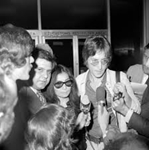
People are usually at their most interesting when they are in flux – uncertain of the way forward, of what life they ought to build. That was the case with John Lennon and Yoko Ono when they arrived in New York in 1971. They were both fleeing England – the recriminations around the Beatles breakup; the terrible misogyny and racism levelled at Ono – but also running towards the optimism and creative excitement of the New York art scene.
This is the period I have tried to recreate in my film One to One: John & Yoko – using a plethora of previously unheard phone recordings, home movies and archive. It’s an unconventional film in many ways, pitching the viewer headfirst into the life, politics and music of the time without the usual music documentary guardrails. At its heart is the One to One concert that the couple gave at Madison Square Garden in the summer of 1972 – a concert that turned out to be Lennon’s only full-length concert after leaving the Beatles.
During this time, Lennon became obsessed with a set of questions: what happened to flower power? Why hadn’t it worked? Why were the youth so apathetic? As an ex-Beatle, how could he use his celebr details
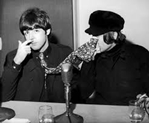
It’s the greatest story often told. The Beatles are not just the most successful musical act of all time; they are perhaps the most analyzed, deconstructed and dissected entertainers since the dawn of recorded music.
We think we know everything, but author Ian Leslie proves otherwise. His new book, “John & Paul: A Love Story in Songs,” is, astonishingly, one of the few to offer a detailed narrative of John Lennon and Paul McCartney’s partnership. And it’s a revelation. Leslie gives a complete portrait of this remarkably fecund and frequently tortured creative partnership, which began in Liverpool in 1957 and ended in New York City on Dec. 8, 1980, with Lennon’s murder.
The basic facts of their first encounter are well known. They met in the summer of 1957 at a garden party in the Liverpool suburb of Woolton, where 17-year-old Lennon was performing with his skiffle band the Quarrymen. McCartney was there to scout Lennon, who was already establishing a reputation as a riveting stage performer. McCartney, 15, ginned up the courage to approach Lennon after his set; their bond was forged over a mutual passion for Little Richard and Elvis Presley’s “Heartbreak Hotel. details
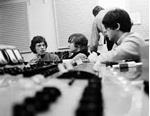
The Beatles story is one of the most enduring, beguiling and seemingly never-ending of our modern age. What else is there to be said? Ian Leslie thinks he has an answer in exploring the relationship, inner workings and chemistry between John Lennon and Paul McCartney – the central axis of the phenomenon that was the Beatles.
This is a riveting, well-written account throwing new light on old stones – the band, John and Paul, songwriting and creativity, and the craft of some of their most critically acclaimed songs (and some lesser-known gems) – all told within a poignant narrative about male friendship, musical alchemy and loss.
There is a welcome revisionism in John & Paul. Leslie throws out the well-worn concept of completely distinct John and Paul songs – one of the central strands of numerous Beatleology studies. Instead, he sees John and Paul as creations of each other, demolishing the simplistic dichotomy of John the rocker and Paul the sentimental balladeer, John the visionary and Paul the champion of ‘granny music’. ‘There was no John without Paul, and vice-versa’ writes Leslie observing of who wrote what: ‘They were so far inside of each other&rsq details
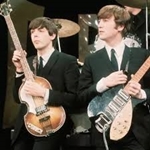
John Lennon and Paul McCartney, the legendary duo behind The Beatles' hits, are celebrated as some of the most iconic songwriters in history.
In their salad days, Paul and John would collaborate at their childhood homes, but as time went on and their musical tastes evolved, they began crafting tunes separately before coming together to refine them. Every Beatles track penned by John and Paul was stamped with the Lennon-McCartney label, honoring a pact they made before skyrocketing to stardom. But it wasn't all smooth sailing. Post-Beatles, John didn't hold back his thoughts on Paul's compositions, openly critiquing his contributions to Abbey Road, Sgt Pepper's Lonely Hearts Club Band, and the hit single Let it Be.
Reflecting on Let it Be, John remarked in a 1980 interview: "That's Paul. What can you say? Nothing to do with The Beatles. It could've been Wings. I don't know what he's thinking when he writes 'Let It Be'."
Not every song was a hit with the band either. Your Mother Should Know, penned by Paul at his London pad and inspired by a line from the 1961 British movie A Taste of Honey, didn't resonate with everyone.
Embracing the old-timey music hall vibe similar to When I'm Sixty details
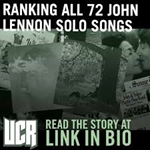
John Lennon released a trio of experimental records before the dawn of the '70s, but his solo legacy really began after the Beatles split.
There would be just 10 short years before an assassin's bullets cut short his life and solo career. Fewer than 10 proper songs emerged after that awful day, first on 1984's gold-certified Milk and Honey and then on posthumous collections like 1986's Menlove Ave. and 1998's Anthology.
So, the balance of his 72-song solo career happened in an incredibly short amount of time. Lennon released six albums over five years through 1975, beginning with 1970's Plastic Ono Band, but 1975's Rock 'n' Roll didn't include any new songs. Double Fantasy arrived just weeks before Lennon was gunned down in 1980.
His best-selling album, 1971's multi-platinum Imagine, was followed by the gold-selling Mind Games in 1973 and Walls and Bridges in 1974. Only 1972's newsy, overtly political Some Time in New York City sold fewer than a half million copies in the U.S. – and it still nearly broke the Top 10 in Lennon's native U.K.
We surveyed it all in the following list, which ranks all 72 John Lennon solo songs. The only tracks that have been left aside are covers, meandering Fran details
